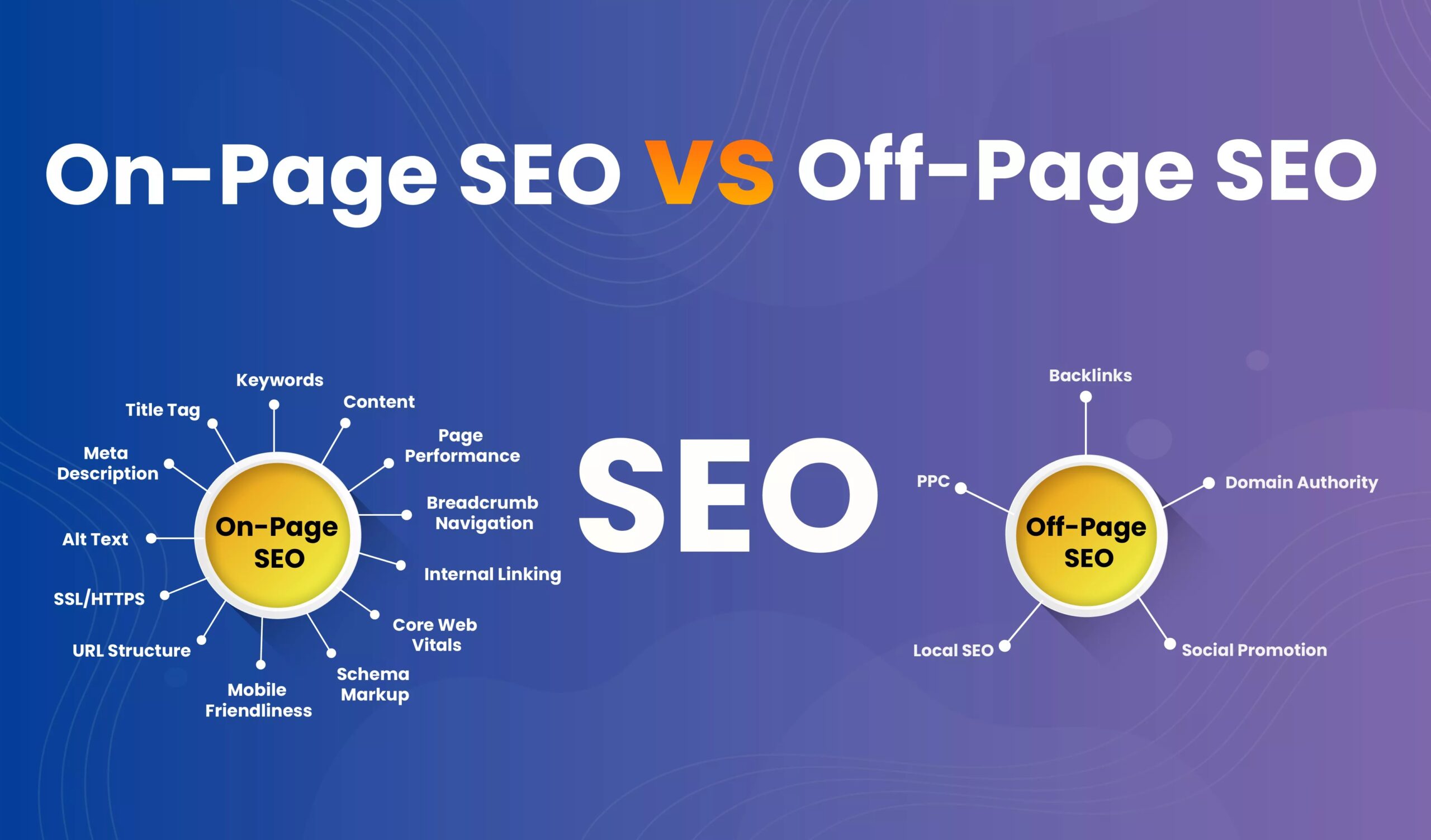
In the ever-evolving world of seo (search engine marketing), it is critical to recognize the important thing variations among on-page and off-page SEO. Both are crucial components of a success SEO approach; however they serve extraordinary purposes and require one-of-a-kind approaches. In this newsletter, we are able to explore the 11 key differences between on-page and off- page SEO that will help you optimize your website and improve your search engine rankings.
What is On-Page SEO?
On-page SEO refers to the practice of optimizing individual web pages to rank higher and earn extra relevant site visitors in search engines like Google. This includes optimizing content, Meta tags, and HTML code, in addition to enhancing website speed and user experience. On-web page Seo is all approximately making your website user-friendly and providing valuable content material that engines like Google can easily crawl and index.
What is Off-Page SEO?
Off-page SEO, then again, refers to outside elements that affect your website’s ranking on search engines like Google and yahoo. This includes one way link building, social media marketing, and other online activities that power visitors to your web page. Off- page SEO is critical for building authority and organizing credibility in your industry.
Key Differences between On-Page and Off-Page SEO
Learn the 11 key differences between on-page and off-page SEO to optimize your website and improve your search engine rankings. SEO Company insights and realistic pointers provided!
Focus
On-Page SEO: Focuses on optimizing individual Webpages for search engines.
Off-Page SEO: Focuses on outside elements like backlinks links and social alerts.
Control
On-Page SEO: You have direct control over on-page factors like content material and meta tags.
Off-Page SEO: You have much less control over off-web page factors like backlinks from websites.
Visibility
On-Page SEO: Improvements are visible on your Website and can lead higher search rankings.
Off-Page SEO: Improvements are visible in search engine effects and may drive more organic traffic in your web page.
Longevity
On-Page SEO: Changes to on-page elements could have a long-lasting impact to your search rankings.
Off-Page SEO: Backlinks can higher your rankings over the years, but they can also be misplaced or devalued.
Authority
On-Page SEO: Establishes your website as an expert in your niche through high-quality website content material.
Off-Page SEO: Builds authority through backlinks and social indicators from reputable websites.
Relevance
On-Page SEO: Ensures that your website content is relevant to the keywords targeting on.
Off-Page SEO: Helps search engines like google and yahoo understand the relevance of your website based totally on external links.
User Experience
On-Page SEO: Improves user experience via providing valuable content and easy navigation.
Off-Page SEO: Drives visitors in your web page, but user experience is generally inspired with the aid of on- page factors.
Keywords
On-Page SEO: Involves optimizing website content with relevant keywords for search engines like google to pick out.
Off-Page SEO: Backlinks with anchor text containing keywords can improve your search rankings.
Competitiveness
On-Page SEO: Less competitive than off-page SEO, as you have extra control over your website’s optimization.
Off-Page SEO: More competitive because it includes building relationships with different websites and earning quality backlinks.
Technical Skills
On-Page SEO: Requires information of HTML, content writing, and website optimization.
Off-Page SEO: Involves outreach, networking, and relationship building to earn top quality backlinks.
Metrics
On-Page SEO: Metrics include bounce rate, time on web page, and pages consistent with session.
Off-Page SEO: Metrics include of domain authority, page authority, and variety of back-links.
Conclusion
In conclusion, both on-page and off-Page SEO are Key components of a successful seo strategy. By knowledge the key differences between the two, you could optimize your website correctly and improve your search engine rankings. Remember to focus on creating high-quality content, earning reputable quality backlinks and presenting a continuing user experience to gain long-term period achievement inside the ever-changing landscape of SEO.
For latest Google updates, stay updated with top website design company in india.



